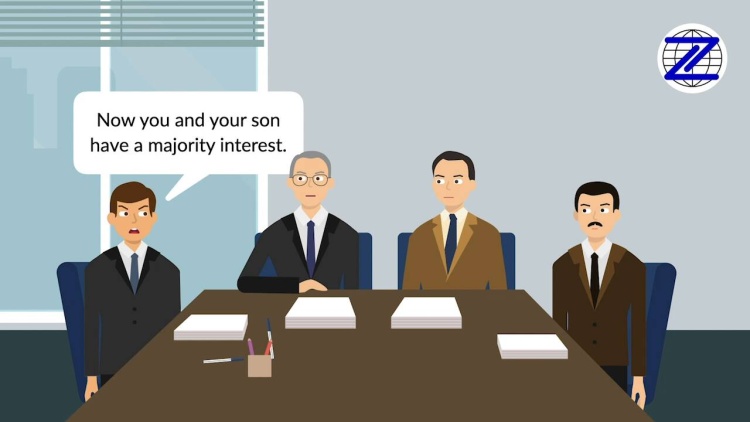Zidell v. Zidell, Inc.
Oregon Supreme Court
277 Or. 423, 560 P.2d 1086 (1977)
- Written by John Caddell, JD
Facts
The Zidell family business was organized into four affiliated corporations in the 1960s. As of 1968, the shares of stock were held by three men as follows: brothers Arnold Zidell (plaintiff) and Emery Zidell (defendant) held 37.5 percent each, and Jack Rosenfeld owned the remaining 25 percent. These three served as the directors of each corporation. Emery was also the chief executive officer. Since the shareholders were employees receiving salaries, the corporation did not declare dividends. In1972, Rosenfeld sold his shares in the corporations to Jay Zidell (defendant), Emery’s son. Emery and Jay thereafter had majority control over the corporation. Arnold and Emery’s relationship deteriorated. When Jay received an increase in salary, Arnold demanded a similar raise and was refused. He resigned in protest, and then demanded that the corporations begin to declare annual dividends. Emery and the other directors declared a dividend based on the corporations’ 1973 earnings. A similar dividend was declared the following year. At the same time, salaries were increased significantly. Arnold sued Emery, Jay, and the other directors to compel them to declare additional dividend. He argued that the dividends were unreasonably small and were part of an effort to squeeze him out of the business. The directors argued that the dividend amount was reasonable given the company’s need to invest in physical improvements, among other factors. The trial court found for Arnold and ordered the directors to issue additional dividends for 1973 and 1974. The directors appealed.
Rule of Law
Issue
Holding and Reasoning (Howell, J.)
What to do next…
Here's why 907,000 law students have relied on our case briefs:
- Written by law professors and practitioners, not other law students. 47,100 briefs, keyed to 996 casebooks. Top-notch customer support.
- The right amount of information, includes the facts, issues, rule of law, holding and reasoning, and any concurrences and dissents.
- Access in your classes, works on your mobile and tablet. Massive library of related video lessons and high quality multiple-choice questions.
- Easy to use, uniform format for every case brief. Written in plain English, not in legalese. Our briefs summarize and simplify; they don’t just repeat the court’s language.





